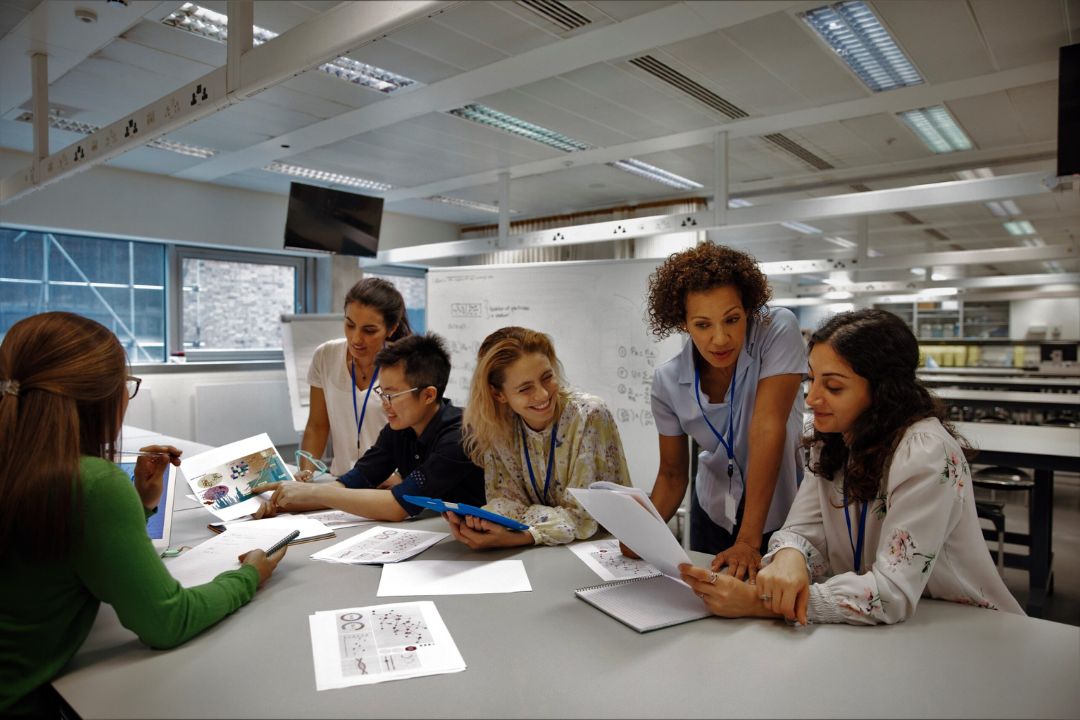23rd May 2023
From therapeutic strategies for Parkinson’s to Bioengineered Organ Transplantation and mRNA Therapeutics in the semi-finals of the InnoStars Awards 2023. Eighteen early-stage innovations are about to begin their six-month-long journey with us.
As one of EIT Health’s most competitive accelerator programmes, the annual InnoStars Awards conduces the transformation of healthcare ideas into viable enterprises. In the context of the EIT Regional Innovation Scheme (RIS), the InnoStars Awards aims for early-stage healthcare start-ups from the Central, Eastern and Southern parts of Europe. This year InnoStars Awards celebrates its eighth edition.
We let the numbers speak for themselves to demonstrate the appeal and professional value of the InnoStars Awards. Altogether 107 eligible applications from 18 European countries were submitted in 2023. Among them, Poland stands out with its 20 applicant start-ups. The InnoStars Awards also attracted considerable interest in Romania, Spain, Hungary, Italy, and Portugal, with at least 8 candidate companies from every country.
Each of the 18 start-ups listed below will receive a grant of €25,000 to develop their business further. During their participation, the semi-finalist start-ups gain financial and professional support while being provided with high-level networking and mentoring opportunities.
As secured in the programme’s timeline, 18 teams with the most promising innovations are now introduced. Four come from Portugal, three from Spain, two from Italy, Lithuania, and Poland, and one from Hungary, Slovakia, Greece, Romania, and Latvia.
Additionally, projects focusing on active ageing have been selected for the Healthy Longevity Global Grand Challenge, a global innovation competition founded by the United States National Academy of Medicine (NAM).
Meet the semi-finalists:
Anacalypsis Therapeutics (Greece) focuses on discovering novel therapeutic strategies for neurodegenerative diseases, particularly Parkinson’s disease, intending to disrupt disease progression and offer disease-modifying therapies. Parkinson’s disease (PD) is the fastest-growing neurodegenerative disease, affecting approximately 10M people globally.
Beat Therapeutics (Portugal) is developing a lead compound, BBIT20, that targets the homologous recombination pathway, potentially becoming a first-in-class therapy for aggressive cancers with limited treatment alternatives.
BirgerMind (Latvia), previous EIT Jumpstarter winner, has developed a wearable, sustainable stand-alone non-invasive neurofeedback device enabling paralysed patients to communicate independently. Their platform is 100% wheelchair-friendly, and it includes a novel thought-to-speech engine and an easy-to-use controller providing chat, email, call-for-help, and book-reading services, as well as an ALS-optimised browser for access to social media, news and various apps.
CoviCell skin patch diagnostics (Hungary) by CelluVir Technology is a non-invasive and affordable technology for quantitatively assessing cellular immunity against viral diseases.
eBreathie (Portugal) Breathing Solutions is a smart inhaler that turns traditional inhalers into “smart” devices, enabling patients and doctors to monitor medication usage, symptoms and provide personalised care remotely.
Emplastrum wearable (Lithuania), a previous EIT Jumpstarter finalist and RIS Innovation Call supported start-up, has developed a wearable medical device for treating skin conditions like psoriasis, eczema, and vitiligo, utilising UV phototherapy, and enabling remote communication between physicians and patients.
ImmunoPaci (Lithuania) by MB Biofita’s motivation is that 1 in 7 babies develop oral thrush, an unpleasant infection causing pain and distressed behaviours in babies. ImmunoPaci reinvents the baby pacifier by infusing it with active bio-composites from natural plants, enhancing babies’ immune systems and providing a superior preventative solution to oral thrush.
IPLEXMED Resp (Portugal), a previous RIS Innovation Call supported start-up, aims to help 1 billion Chronic respiratory disease patients worldwide that are highly prone to respiratory infections, which are often antimicrobial resistant, contributing to irreversible lung damage and premature death. IPLEXMED’s breakthrough solution enables fast and reliable detection of multiple infectious agents and their drug resistance profile at point-of-care and at home, empowering personalised treatment, and real-time disease monitoring.
IQ Biozoom (Poland) develops non-invasive, pain-free saliva-based monitors that allow precise, real-time monitoring of biomarkers such as glucose levels, fertility issues, and human metabolism at home. The results of testing can be sent to the app and analysed retrospectively.
MEEVA (Italy): On average, 1 in every 100 EU children is diagnosed with Autism Spectrum Conditions (ASC), and rates are rising in all Countries. MEEVA, previous EIT Jumpstarter participant, leverages virtual reality and ML-based data analytics to provide innovative therapies for Autism Spectrum Conditions (ASC) teens, facilitating increased social interaction and engagement.
MoodZ (Romania) by SC RD ZED is a digital supplement delivered through a phone and smartwatch app, improving mood through vibrations during sleep and addressing the challenge of mood disorders.
Orgavalue (Portugal) by I-R3Therapies, a previous EIT Jumpstarter runner-up of 2022, aims to bioengineer personalised human livers to address the global organ transplant shortage. Despite progress in medical therapies, the WHO estimates that only 10% of the worldwide need for organ transplantation is met.
PeryView (Poland) by Reon is a user-friendly web SaaS application that enables visual field testing at home, serving as a screening tool for detecting early symptoms of diseases such as glaucoma and neuropathies.
Rapid test for respiratory superbugs (Spain) by Nanodecal: According to the start-up, over 200 million people suffering from chronic lung disease, are at risk of incurable pneumonia. Nanodecal is developing a rapid diagnostic test for detecting superbugs responsible for pneumonia in less than 10 minutes, aiding clinicians in prescribing targeted antibiotics and preventing permanent infections.
ScreeNIB, a prostate cancer smart screening (Italy) by NIB Biotec, a previous winner of the EIT Health Wild Card programme, developed a smart biosensor that utilises urinary molecules as biomarkers for prostate cancer, offering a rapid and decentralised diagnostic solution outside hospitals.
Seedchrony (Spain) by Manina Medical is a B2B start-up that assists doctors in decision-making during In Vitro Fertilisation (IVF) treatment by detecting the optimal timing for embryo transfer non-invasively and immediately.
Sensible Biotechnologies (Slovakia) aims to overcome the challenges of mRNA therapeutics manufacturing by developing a method to produce abundant, highly stable, and non-immunogenic mRNA on demand using living cells.
Sitagliptin eye drops (Spain) by D-sight is developing a new innovative therapeutic approach for early stages of diabetic retinopathy (ESDR), the most common microvascular complication of diabetes and the leading cause of preventable visual disability and blindness in working-age population throughout the world.
Find out more about the programme and apply next year here.
New article lays framework for DMD evaluation in EU

An EIT Health-led article published in Nature.
New data shows AI innovation needs skills beyond coding

The largest live dataset of AI start-up talent analysed.
Europe's top health start-ups take centre stage: EIT Health Catapult winners are revealed at HLTH Europe

2025 Catapult programme winners announced.